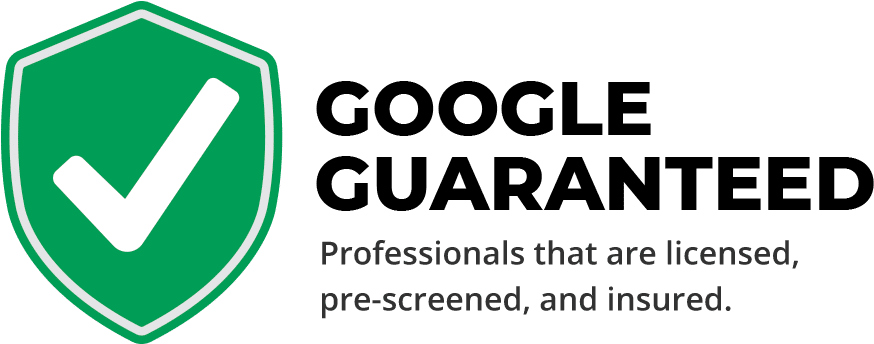- Can you tell me in your own words how the accident occurred? …
- What was the first inkling you had that a crash occurred or that it was about to occur? …
- From your perspective, how did the crash occur? …
- Can you go into detail about how the crash occurred?
Typical deposition questions in a car accident case?
Since 1982, Alan Sackrin has represented clients throughout Florida in recovering monetary damages for car accident injuries. Alan is a Board Certified Civil Trial Expert who has spent years evaluating accident facts, applying the law, and has effectively asked juries to render favorable verdicts for his clients.
Below are the questions we ask when first meeting with a car accident client. One of the purposes of the initial consultation is to discuss the details of the client’s car accident by asking some basic questions about the accident. This meeting helps us to decide whether we should represent the client and, if so, evaluate the strength of their case. These questions we ask are based upon our years of experience in handling car accident matters and are designed to discover the relevant facts of our client’s case.
What Not to Ask a Witness
Just as important as knowing what questions to ask a witness following a car accident is knowing what not to ask. For instance, never ask a witness for second- or third-hand accounts of what happened. Make sure the witness only tells you what they personally saw. If a witness tells you, “Well I didn’t see the accident, but my friend did…”, that is not helpful to your case. It might be useful to locate and speak to the friend, but anything the witness tells you in this context is little more than gossip–or in legal terms “hearsay,” which is usually inadmissible in a court of law.
Also make sure the witness does not engage in speculation that goes outside their own knowledge and expertise. Be wary of answer that begins with “I think…”, since that indicates the witness does not know what he or she saw. You do not need the witness’ opinion of what might (or might not) have happened.
It is also a good idea whenever possible to ask the witness to write down their observations and then sign and date the paper. This is not the same thing as a notarized affidavit or a statement made under oath in court. But a signed, dated writing can be useful in helping to establish the credibility of a witness in a later formal proceeding. Conversely, if the witness suddenly changes their account of what happened, the signed statement may be useful in undermining their credibility.
For example, let’s say you are in an accident with another driver at a busy intersection. A witness tells you at the scene that he saw the other driver run a red light and enter the intersection prematurely. But several months later during a deposition in your personal injury lawsuit against the other driver, the witness suddenly claims he saw you enter the intersection first while making an illegal left turn. If you took the time to obtain a written statement at the scene, that evidence can show the witness is either lying in the deposition or is simply unreliable. Either way you can protect yourself.
Rated 10 best law firm FOR FLORIDA













From your background to details about the accident itself, here’s what you’ll probably be asked about at your car accident deposition.Updated By
A deposition is a question-and-answer session in which a witness gives testimony under oath in response to questions from an attorney. In a car accident case, the witness may be one of the drivers involved in the crash, a passenger, or an eyewitness to the accident.
Depositions are a key part of the information-gathering discovery phase in any car accident case. Typically, car accident deposition questions cover three subjects: your personal background, how the accident happened, and (if youre the plaintiff) the nature and extent of your car accident injuries and the course of your medical treatment. Lets look at each of these areas in more detail.
Typical car accident deposition questions about your personal background include:
1. Name, address, telephone number, date of birth.
2. Your residential addresses for the past 10 years or so.
3. Your educational background:
4. Your family background:
5. Your health and medical background:
6. Employment background:
7. Criminal background:
8. Injury/civil claims background:
Typical car accident deposition questions on how the accident happened include:
1. Time, date, day of week, and location of the traffic accident.
2. Where were you coming from and where were you headed?
3. What were the weather conditions?
4. What were the traffic conditions?
5. Were there any traffic control devices, such as traffic lights, stop signs, other signage, lane markings, etc. involved?
6. Exactly what each driver did and when. Be prepared for specific questions about times and distances. For example:
Tip: If you dont know the answers to these (or any) questions, dont guess.
7. Did you speak to the other driver after the accident and, if so, what did each of you say? Did either of you admit responsibility for causing the accident? (Remember, be careful what you say at the scene of a car accident.)
8. What happened to your body inside the vehicle when the collision occurred? Did any part of your body hit any part of the car?
9. What happened to your car after it was hit?
10. What physical damage did each car have? Was your car repaired? How much did the repairs cost?
11. Who were the witnesses to the accident? Who came to the accident scene?
12. Do you have any photos or diagrams that show the accident scene? (You may be asked to draw a (non-scale) diagram of the accident scene showing how the accident happened.)
13. Did you drink any alcohol during the 24 hours before the accident?
14. Do you know of any reports generated in connection with the accident? (such as a police report)
Typical car accident deposition questions related to your injuries and treatment include:
1. What injuries do you claim were caused by this accident?
2. Did you have any health conditions before the accident that you contend were aggravated (made worse) by the accident?
3. What doctors and other health care providers have you seen for treatment of your injuries?
4. What symptoms did you have at the scene of the accident? Did you get out of your car and walk around at the scene?
5. When did you first get medical care after the car accident? What did you tell the doctor about your symptoms at that first visit?
6. What were your symptoms over time? Did your symptoms any get better? Which symptoms and when?
7. If there were any gaps in your medical care (periods of several weeks or more that you did not get any treatment), why did you not get treatment?
8. What symptoms, if any, do you still have that you attribute to this accident?
9. How much have you incurred in medical bills so far?
10. Have you missed any time from work as a result of this accident? How much? When? What amount of lost income are you claiming?
11. Do you claim that you will miss work or lose income in the future as a result of this accident? If so, explain.
12. How have your injuries affected your day-to-day activities?
13. How has your injury affected your personal relationships, i.e. your marriage? Loss or reduction of sex? Loss of enjoyment of other activities together? Loss of vacations? Loss of other opportunities?
Have you been in a car accident?
Take our free car accident quiz to find out if youre likely to get a settlement. Legal Information Personal Injury Law
Start here to find personal injury lawyers near you. Zip Code
FAQ
What type of questions should you ask during an interview following an accident?
- Some of the questions below will be applicable and some will not. Which questions are applicable depends on the nature and circumstances of the accident. …
- How does the injured employee feel now? …
- Who was injured? …
- What were the causal factors of the accident? …
- When did the accident occur? …
- Why was the person injured?
What should I ask for after an accident?
- First and last name;
- Address;
- Driver’s license number;
- Phone number;
- Vehicle information – Make and Model, Year, License Plate; and.
- Insurance information, including.
How do you respond to a car accident?
- Check yourself for injuries. If you’re injured, call 911 or ask someone else to do so. …
- Check on the well-being of your passengers. …
- Get to safety. …
- Call 911. …
- Wait for help. …
- Exchange information. …
- Document the accident. …
- Notify your insurer and start the claims process.
What are the 5 steps you should follow if you are involved in a car accident?
- Stay Where You Are. …
- Report the Accident to Law Enforcement (911). …
- Write Down Information for All Relevant Parties. …
- Take Down Contact Information for Any Witnesses. …
- Contact Your Insurance Company. …
- Visit a Doctor immediately if you are injured.
